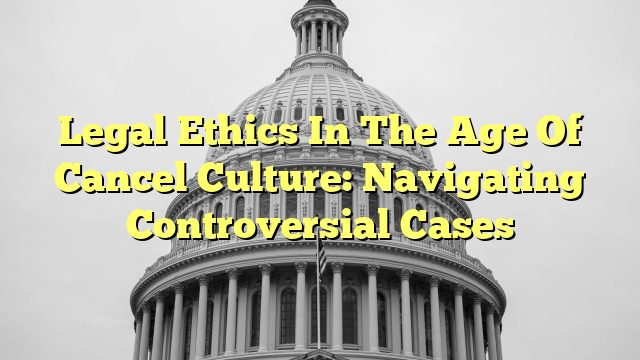Table of Contents
- Introduction
- What is Cancel Culture?
- Controversies on Cancel Culture
- Why is Cancel Culture Bad?
- Can You Sue Someone for Cancel Culture?
- Thesis Statement on Cancel Culture
- Conclusion
Introduction
Cancel culture is a form of public shaming in which an individual or group publicly criticizes and ostracizes another individual or group for their views, words, or actions. It is often done online, through social media and online forums, and has become a controversial issue in the public sphere. This article will discuss the ethical implications of cancel culture and will address the following questions: What are the controversies on cancel culture? What is the reason why cancel culture is bad? Can you sue someone for cancel culture? What is the thesis statement of cancel culture?
What is Cancel Culture?
Cancel culture is the process of publicly shaming an individual or group for their views, words, or actions that are deemed to be offensive or controversial. This typically occurs online, where individuals or groups are “cancelled” or blasted on social media or other online forums. It is a form of public shaming. The goal is to make an individual or group so socially unpopular and disliked that they are excluded from social interactions.
Controversies on Cancel Culture
Cancel culture has been the subject of many controversies due to its potential for extreme and public shaming. Critics of the practice have argued that it is a form of censorship and can be used to suppress freedom of speech. Furthermore, it is argued that cancel culture can be used to target certain individuals or groups for their views, words, or actions, regardless of their intent or the context of their words or actions. This can lead to an environment of fear and repression in which individuals are afraid to express their opinions or engage with certain topics or ideas.
Why is Cancel Culture Bad?
Cancel culture is seen as a negative aspect of our society due to its potential for extreme and public shaming. While the goal may be to make an individual or group socially unpopular, the consequences can be more serious than intended. Cancel culture can lead to the suppression of freedoms of speech and can create an environment of fear in which individuals are afraid to express their opinions. Furthermore, it can be used to target certain individuals or groups for their views, words, or actions, regardless of their intent or the context of their words or actions. This can lead to the formation of a hostile environment, in which certain individuals or groups are made to feel unwelcome or excluded.
Can You Sue Someone for Cancel Culture?
The short answer is that it is possible to sue someone for cancel culture, but it is very difficult. It is difficult to prove that an individual was the victim of cancel culture and that the perpetrator acted with malicious intent. Furthermore, it is difficult to prove that the perpetrator’s actions were the cause of any harm to the victim. Therefore, it is usually not a viable option to pursue a legal remedy in cases of cancel culture.
Thesis Statement on Cancel Culture
The thesis statement on cancel culture is that cancel culture has the potential to be dangerous, as it can lead to the suppression of freedom of speech, the formation of a hostile environment, and the targeting of certain individuals or groups for their views, words, or actions regardless of their intent or the context of their words or actions.
Conclusion
In conclusion, cancel culture is a controversial issue in the public sphere due to its potential for extreme and


Navigating ethical cases in this cancel-culture age is a challenging task.